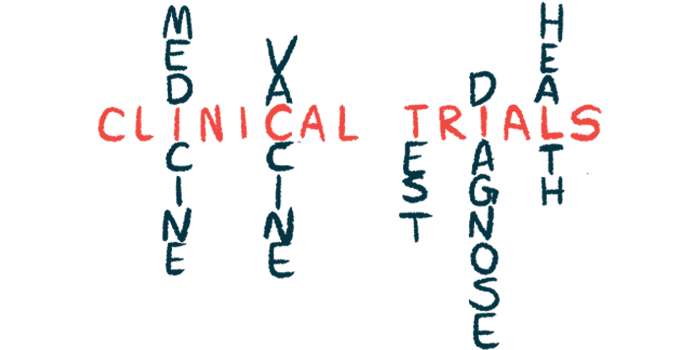TiumBio plans Phase 1b TU7710 trial in hemophilia with inhibitors
Trial is due to enroll 18 people with hemophilia A, hemophilia B

TiumBio is preparing to launch a Phase 1b clinical trial to test TU7710, its experimental treatment to manage bleeding in people with hemophilia who have inhibitors, that is, neutralizing antibodies that can lower standard therapies’ effectiveness.
“Our team has been developing TU7710 as an innovative hemophilia treatment option,” Hun-taek Kim, PhD, founder and CEO of TiumBio, said in a company press release.
This week, the company submitted applications to regulatory authorities in Spain and Italy for permission to begin the trial, which is expected to enroll 18 people with hemophilia A or hemophilia B who have inhibitors. All the participants will be treated with TU7710 at varying doses. Its main goals will be to assess TU7710’s safety and pharmacological profiles, and identify the optimal dose in future Phase 2 studies.
Hemophilia is caused by the lack or malfunction of clotting proteins, specifically factor VIII in hemophilia A and factor IX in hemophilia B. Standard treatment involves replacement therapies, where a working version of the missing protein is given.
Some patients start producing neutralizing antibodies against the replacement therapies’ clotting factors. Called inhibitors, these antibodies interfere with the clotting factors’ activity and may prevent the replacement therapies from working properly.
In these patients, other medications called bypassing agents may help promote blood clotting and control bleeding, especially during surgery when bleeding is a major concern. Unlike standard replacement therapies, bypassing agents promote clotting through mechanisms that don’t involve the clotting factors that are missing or being targeted by inhibitors.
What is TU7710 and how does it work?
TU7710 contains a recombinant, or lab-made version, of a clotting protein called activated factor VII (FVIIa). Another lab-made form of the protein is the active ingredient in NovoSeven (eptacog alfa [activated]), an approved bypassing agent marketed by Novo Nordisk. NovoSeven is “widely accepted as a standard treatment” for hemophilia patients in need of a bypassing agent, according to TiumBio.
The company said the version of FVIIa in TU7710 can be active much longer than the version in NovoSeven, and has a half-life that’s about six or seven times longer than NovoSeven’s. Half-life refers to the amount of time it takes for the levels of a compound or medication to drop to half of those originally administered. The longer the half-life, the longer a specific compound or medicine remains active.
The longer half-life means TU7710 “will substantially reduce both burdens of treatment costs and frequent dosing” compared with NovoSeven, said TiumBio.
“We believe that TU7710 will become a highly effective medication that can manage bleeding episodes and prevent bleeding during surgical operations with its longer half-life compared to NovoSeven,” said Kim, who noted TiumBio’s efforts to develop a new hemophilia treatment have been bolstered by the expertise of researchers at the company who helped develop Afstyla (lonoctocog alfa), an approved replacement therapy for hemophilia A that’s sold by CSL Behring.
TiumBio is wrapping up a Phase 1a study of TU7710 in healthy male volunteers. It plans to present the results in June at the 2024 meeting of the International Society on Thrombosis and Hemostasis, in Bangkok.







